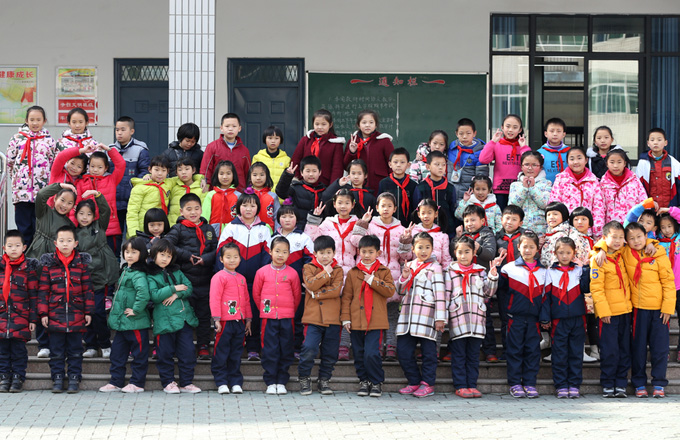White paper: Judicial Transparency of Chinese Courts
IV. Disclosure of Judgments, Verdicts and Conciliation Statements
Judgments, verdicts and conciliation statements are the final products of the trial work of a people's court, and are important carriers that carry all litigation activities, settle disputes and reflect judicial competence. The promotion of the legal, timely and complete disclosure of judgments, verdicts and conciliation statements is an important measure to promote improvement of judicial capacity and assure judicial fairness.
Establishment of China Judgments Online
On July 1, 2013, the national uniform platform for disclosure of judgments, verdicts and conciliation statements—China Judgments Online, has been officially launched. Currently, people's courts at all levels in China will upload their judgments, verdicts and conciliation statements to China Judgments Online, and this has realized the full coverage of courts in China, case types and presiding judges. On December 15, 2015, China Judgments Online underwent a complete transformation and upgrading and added such functions as one-key intelligent search, search for relevant judgments, verdicts and conciliation statements and personalized service, and realized the disclosure of judgments, verdicts and conciliation statements in minority language, and launched the view and download function for judgments, verdicts and conciliation statements in Mongolian, Tibetan, Uighur language, Korean and Kazakh to better satisfy the diversified needs of the public. On August 30, 2016, the APP mobile client of China Judgments Online was duly launched.
From August of 2016, the daily PV of China Judgments Online has exceeded 20 million hits, and the PV growth trend is obvious. By the end of 2016, China Judgments Online has disclosed more than 25.72 million judgments, verdicts and conciliation statements, the website PV has broken 4.7 billion hits, and its users are from more than 190 countries and regions in the world, and over 500 million PV is from overseas, of which, the PV from North America has exceeded 100 million. The website has become the largest website for judgments, verdicts and conciliation statements in the world, and world-class universities like Harvard University, Yale University and Stanford University have taken the judgments, verdicts and conciliation statements published by China Judgments Online as their research objects. The SPC has newly prepared and modified 568 templates of instruments for civil actions and 132 templates of instruments for administrative actions, all of which are made available to the public free of charge, so as to improve the standardization of legal instruments.
Improvement of the System and Mechanism for Uploading Judgments, Verdicts and Conciliation Statements
In order to guarantee the standardization and orderliness of the uploading of judgments, verdicts and conciliation statements, on August 30, 2016, the SPC published the amended Regulations on Online Publication of Judgments, Verdicts and Conciliation Statements by People's Courts, which have itemized the type of judgments, verdicts and conciliation statements that ought to be disclosed, and judgments, verdicts and conciliation statements shall be published on the internet other than those involving State secrets or juvenile delinquency, cases closed by mediation or confirming the validity of mediation agreement (except for those which are necessary to disclose for the purpose of protecting the national interest, social public benefits and legitimate rights and interests of others), divorce litigation or those involving the custody and guardianship of minor children. Judgments, verdicts and conciliation statements "involving personal privacy" shall only be disclosed online after concealing the "content involving personal privacy", and the judgments, verdicts and conciliation statements of first instance which have been appealed or protested shall also be disclosed, and establish organic connection with those of second instance. For those judgments, verdicts and conciliation statements that are not made public, except for those may divulge State secrets, the case number, trial court, date of adjudication and reasons for non-disclosure are requested to be published on China Judgments Online.
In addition, the new regulations require the transformation of the work mode for disclosure of judgments, verdicts and conciliation statements from the traditional mode of centralized uploading by special institution to the mode of one-click automatic publication by the presiding judge on the case handling platform. The complaint and opinion handling mechanism for public feedback and the public supervision mechanism for judgments, verdicts and conciliation statements have been established to fully accept the supervision over the work of the disclosure of judgments, verdicts and conciliation statements by all walks of life, so as to ensure the full disclosure of judgments, verdicts and conciliation statements that should be disclosed.
People's courts at all levels have kept refining the scope, requirements and procedures for uploading of judgments, verdicts and conciliation statements, improved the construction of the technology system for disclosure of judgments, verdicts and conciliation statements, and greatly promoted the uploading of judgments, verdicts and conciliation statements. Courts in Beijing, Shanghai, Zengjiang, Jiangxi and Chongqing have embedded into the online case handling system such functions as intelligent correction, automatic formatting, privacy shielding, format handling and one-key access for judgments, verdicts and conciliation statements, and this has enhanced the automation level of the uploading of judgments, verdicts and conciliation statements. Guangzhou Maritime Court has relied on its English website to translate 100 judgments, verdicts and conciliation statements into English and disclose them online.
Establishment of "Faxin", a Digital Network Service Platform for Application of Chinese Laws
People's courts explored new modes for application of information on judgments, verdicts and conciliation statements, and made full use of big data and cloud computing technology to promote the in-depth application of the disclosed information on judgments, verdicts and conciliation statements. On March 31, 2016, the digital network service platform for application of Chinese laws, "Faxin", developed by the SPC has been officially launched. Based on the information on judgments, verdicts and conciliation statements, Faxin Platform carries out in-depth processing, aggregation and analysis of lots of legal provisions, case gist, legal views and information on judgments, verdicts and conciliation statements, and makes intelligent push for cases of the same type, so as to satisfy the precise needs of judges, lawyers, scholars and general public on laws, cases and professional knowledge. Currently, Faxin Platform has covered 20 million judgments, verdicts and conciliation statements, typical cases, law documents, academic essays and other types of legal literature, amounting to over 10 billion Chinese characters. The Platform will, based on the operation and improvement situation, gradually open to the whole society and provide the public with more convenient, intelligent and precise litigation services and legal services.
Establishment of Judicial Case Study Institute and Launch of China Judicial Case Online
On September 30, 2016, the SPC officially formed the Judicial Case Study Institute and launched the Judicial Case Online to promote the disclosure and publicity of Chinese and foreign typical cases. Judicial Case Online has relied on big data technologies and internet to carry out search, collection, systemization and publication of lots of cases, and intelligently generated typical cases with public recognition by the recommendations, comments, likes of the audience and other interactive feedback methods with the audience. There will be an expert comment column on Judicial Case Online for carrying out in-depth analysis and interpretation of the pushed typical cases to form clearer and more specific social guidance. The Judicial Case Study Institute will regularly carry out inter-translation for the foreign and overseas judicial cases and judgments, verdicts and conciliation statements to strengthen the Chinese and foreign judicial communication, and display the judgment level of Chinese judges in international social publicity.
- Judicial transparency report shows verdict openness needs improvement
- Stop abuse of legal aid and judicial review
- China to formulate judicial exclusionary rule of illegal evidence
- Ten judicial issues that sparked online debate last year
- China tightens judicial rules on children trafficking
- Top judicial search terms of 2016 revealed



















